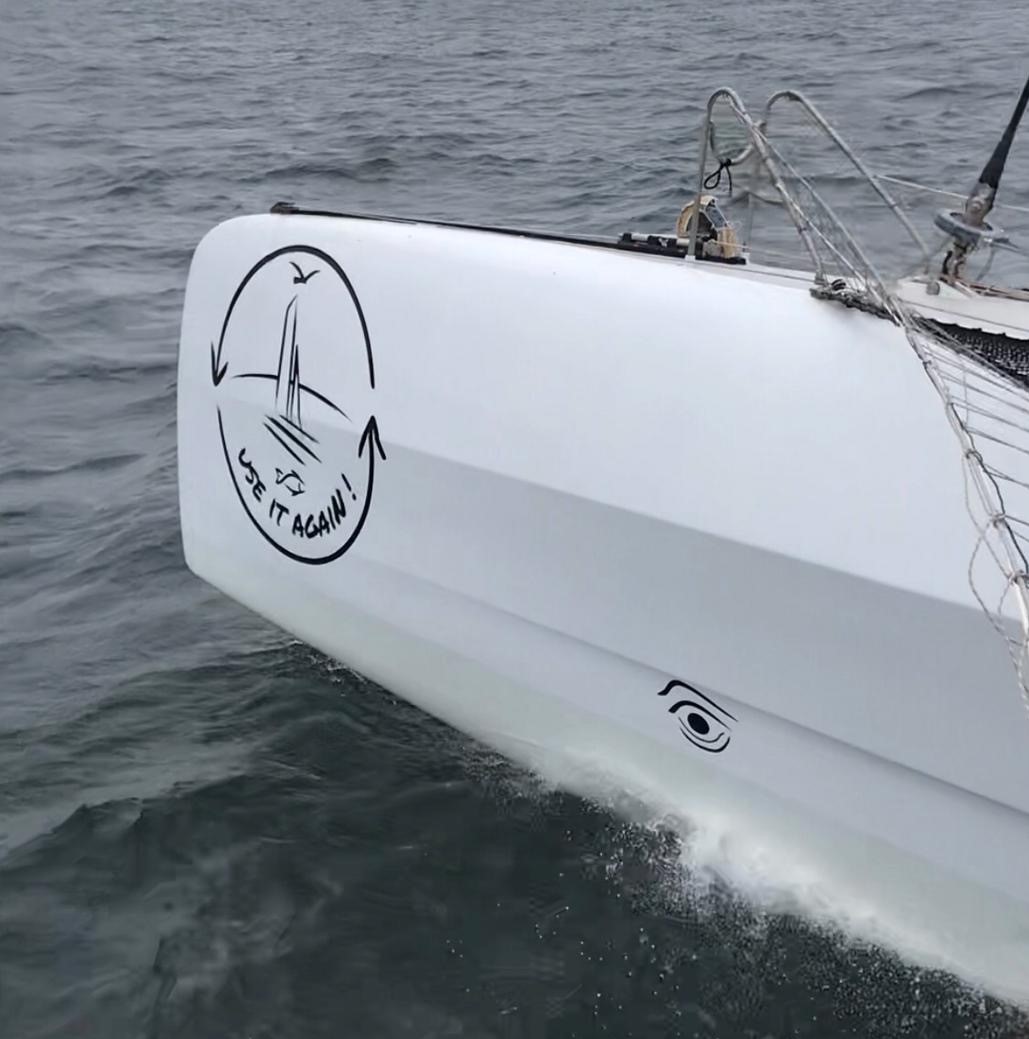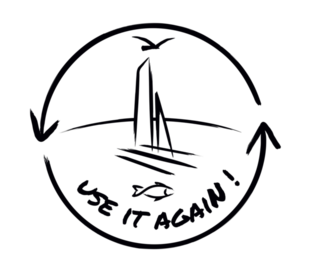Ambassador ofRespectOcean since 2019, Romain Pilliard has been meeting Olivier Adam*, Professor at Sorbonne University, bioacoustics researcher, specialist in cetacean noise emissions, last November during a screening-debate on the theme of underwater noise, organized by the Association of Raphaëla Le Gouvello. The protection of the Ocean is – together with the development of the circular economy – at the heart of the concerns of the teamUse It Again! «This collaboration with Olivier Adam started from a very simple observation, scientists are sorely lacking in data to identify cetaceans especially in the most remote areas, but I am just about to sail in some parts of the ocean where few boats venture. This is a unique opportunity to collect data around the world,"says Romain Pilliard.
 The eye of "Moby" has always watched over this legendary trimaran.
The eye of "Moby" has always watched over this legendary trimaran.Use It Again! is ellen MacArthur's former trimaran. For the record, "Moby" was the nickname that the British sailor had given to the boat during her circum tour of the world in 2005, convinced of the protective aura of the cetacean whose benevolent eye sported the central hull. A few days before the departure of the Route du Rhum in 2018, Romain Pilliard – by superstition? – had in turn, affixed moby's eye on the bow ofUse It Again!.
On this Westabout around the world tour, he will listen to his congeners!
The trimaranUse It Again! will thus be equipped with underwater microphones, currently in the test phase. «I am very happy that Romain can collaborate with us. His work will consist in combining visual and especially acoustic observations because some cetaceans are ratherdeep-sea species such as sperm whales or beaked whales, and therefore more difficult to see on the surface. With the acoustics, we can know if they are present in the area, without even having seen them. We will also look at their behaviour, in particular whether or not they are attracted to trimaran. " explains Olivier Adam. The on-board microphone systems will be positioned in front of the drift and in the wake of the trimaran using a dedicated pole. Thus the presence of cetaceans can be detected up to 30 miles on a clear day around the position ofUse It Again! throughout his Westabout around the world record."These thousands of hours of recordings will also make it possible to map the soundscape of the Use It Again course! to measure the impact of man on the Ocean by making comparisons between the oceans and determining the different noise nuisances between areas with maritime traffic and areas without " adds Olivier Adam.


